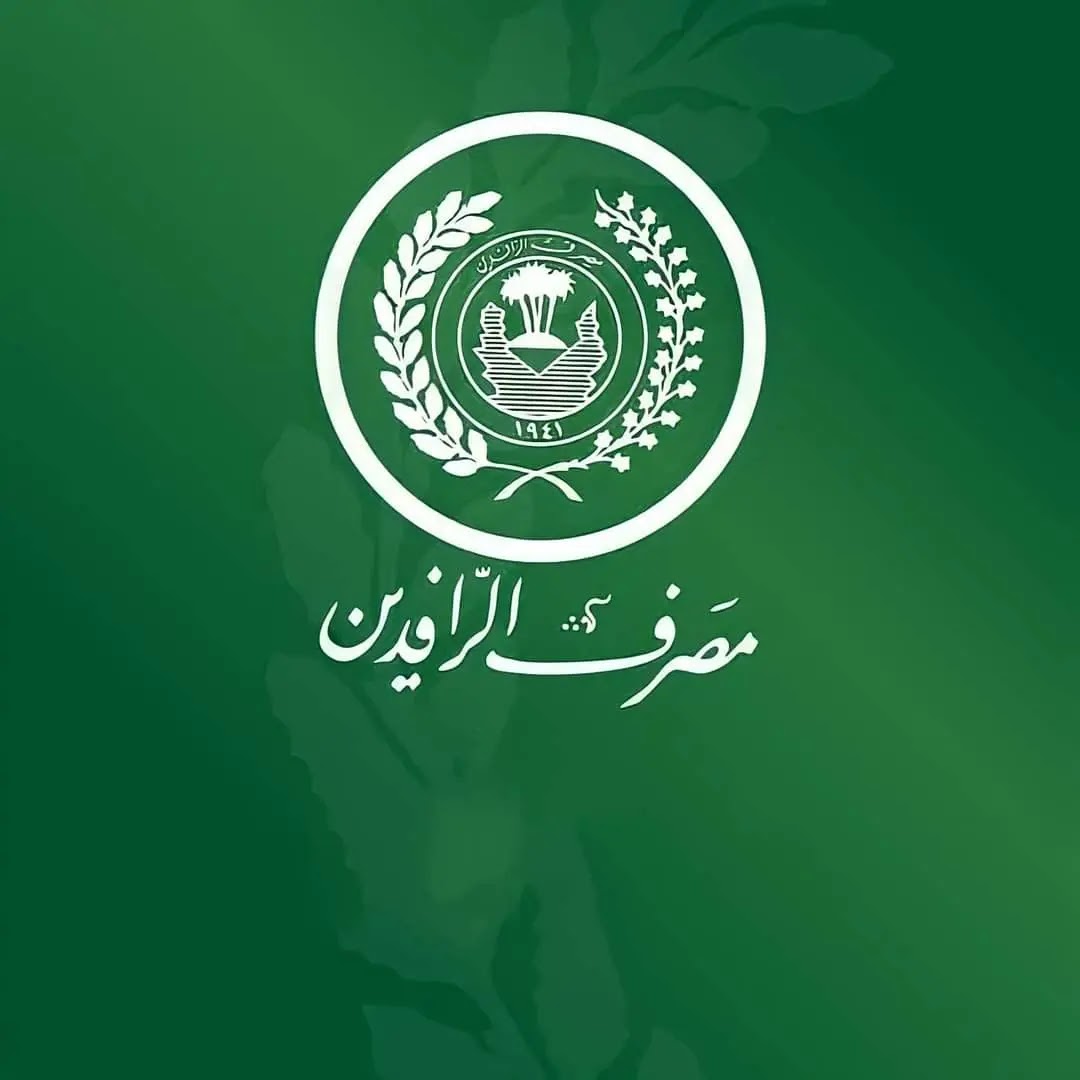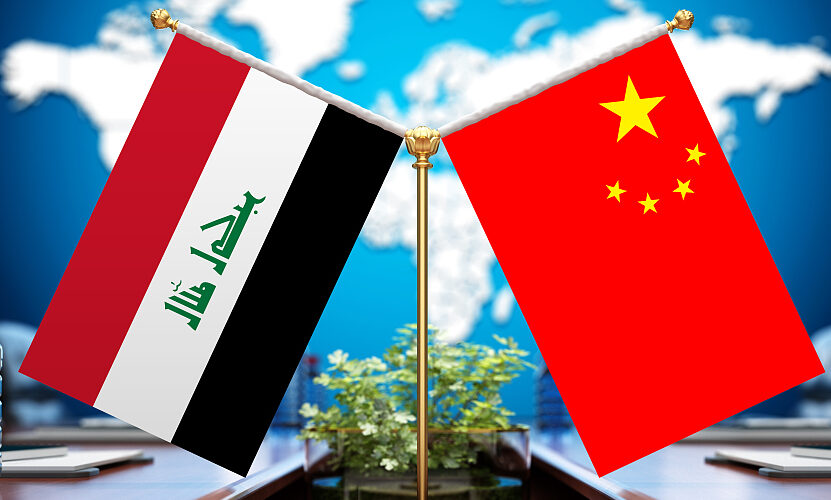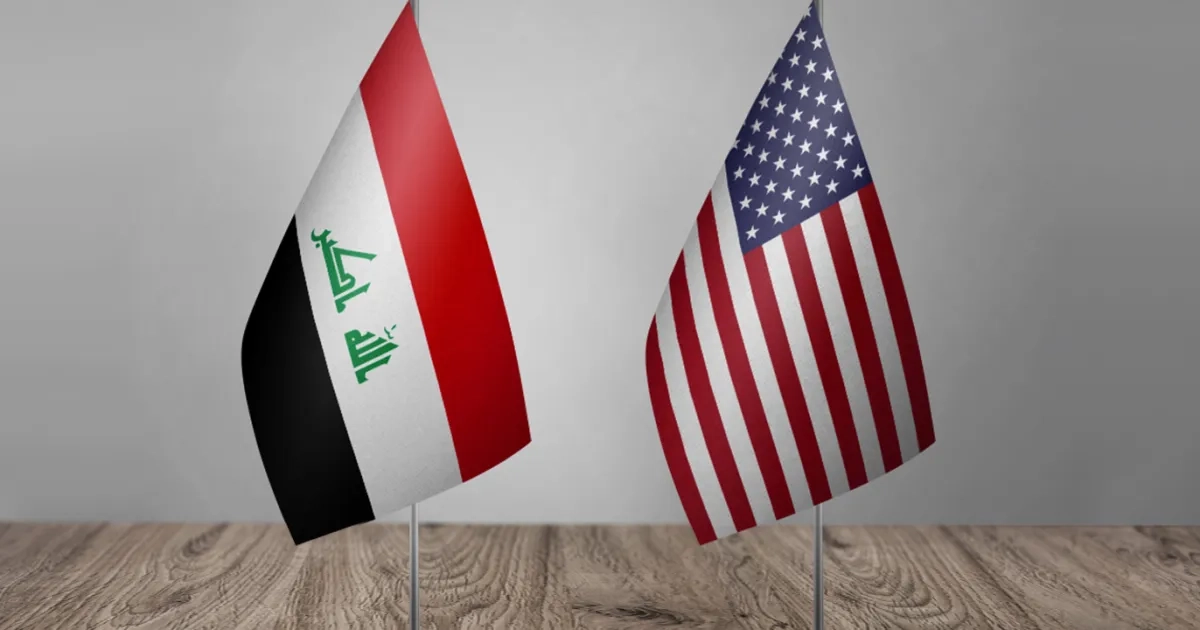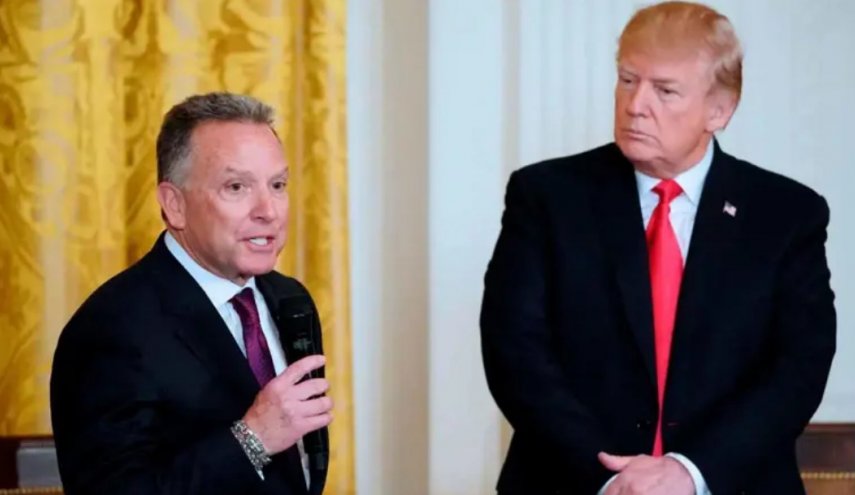Iraq’s Al-Rafidain bank: New AML system deployed

On Saturday, Iraq’s state-owned Al-Rafidain Bank launched a daily transaction monitoring system to reinforce anti-money laundering (AML) compliance and boost financial transparency.
The video for this My FX Buddies Blogpost is below here:
According to the bank’s statement, the system, developed with international partners, will be deployed initially at six key branches: Al-Waziriyah, Al-Muheet, Al-Rafii, Dora Oil Complex, Zurbatiyah, and Safwan, with additional locations to follow.
“This reflects our commitment to global AML and counter-terrorism financing standards,” the bank stated, noting the move aims to strengthen trust in Iraq’s banking sector.
The platform enables real-time surveillance of financial activity, centralized auditing via the AML Reporting Department, and improved detection of suspicious transactions.
A FAcebook post
Rafidain Bank launches a banking transactions monitoring system in a number of its branches.

Rafidain Bank announced on Saturday the launch of the Daily Financial Transactions Monitoring (AML) system in six major branches of systemic importance.
A statement issued by the bank, seen by Al-Eqtisad News, stated that "in a pioneering step that strengthens Iraq's position in the global banking system, Rafidain Bank - in partnership with leading global and international institutions - has launched the Anti-Money Laundering (AML) Daily Financial Transactions Monitoring System in six major branches of systemic importance: Al-Waziriya, Al-Muheet, Al-Rafie, Al-Dura Oil Complex, Zurbatiya, and Safwan."
The statement indicated that "the remaining branches will be included successively." The statement added that "this achievement comes as part of the bank's commitment to implementing strict international standards in combating money laundering and terrorist financing, which is a fundamental requirement for enhancing confidence in the Iraqi banking sector regionally and globally."
It stressed that "the new system enables advanced monitoring and analysis of financial transactions, which contributes to uncovering suspicious activities and reducing the risks associated with financial crimes. It also provides accurate central audit procedures by the Money Laundering Reporting Department to ensure full compliance with international regulations."
He pointed out that "this transformation represents a qualitative leap, as it keeps pace with the latest global banking technologies, enhances transparency, and reduces reliance on paper-based procedures. This contributes to accelerating inspection and auditing processes, and achieving unprecedented levels of financial security and economic stability.
" According to the statement, Rafidain Bank affirmed its leadership in developing the Iraqi banking sector and preparing it for integration into global financial markets, which enhances the confidence of investors and international correspondents and places Iraq in an advanced position within the regional and international financial system.
Witkoff explains the content of Trump's message to Tehran
US Middle East envoy Steve Witkoff confirmed that Trump's message to Iran is that he is a president who seeks peace and there is no reason to resort to military action.
In televised statements, Witkoff explained that "Trump said in the message he sent to the Iranians, 'I am a president of peace, and we must not resort to a military solution. Rather, we must negotiate. We must clarify misconceptions and establish a monitoring and verification system so that no party is concerned about nuclear armament.'"
He explained that "President Trump does not want war, and he may resort to a military solution to stop wars, and this is the only reason that might push him to take this step. As for Iran and its nuclear file, we hope that we will not resort to this option, and that we will be able to resolve the crisis at the negotiating table."
Two weeks ago, Trump said in an interview with Fox News that he had sent a letter to Iranian Supreme Leader Ali Khamenei proposing "direct negotiations."
The next day, he said the United States was "in its final moments with Iran," adding, "They cannot be allowed to have a nuclear weapon. Something will happen soon."
Economist: Government measures are insufficient to resolve the dollar exchange rate crisis in Iraq

Antoine told Al Furat News Agency, "There are many factors that influence price stability, such as supply and demand, in addition to the psychological and social factors that drive the market."
He added, "These factors make it difficult to accurately measure the exchange rate," stressing that "current government measures are not sufficient to solve the problem. Rather, in-depth studies are needed that address all the economic and psychological dimensions of this crisis."
Mazhar Muhammad Salih: Delaying the 2025 budget schedules will have no impact on government spending.
Saleh told Al Furat News Agency, "Despite its delay due to the amendment of some articles of the Federal General Budget Law No. 13 of 2023 last February, related to the region's oil, there will be no significant impact on spending in the public finances."
He pointed out that there are two "legal flexibilities" that contribute to regular spending: the legal provisions in effect in the general budget from 2023 to 2025, in addition to the Financial Management Law No. 6 of 2019, as amended.
He added, "These two laws provide legal cover for spending, particularly in ongoing and approved investment projects, as there is no suspension of spending except in newly created operational areas and some limited spending areas.
Iraq contracts with China to build a medical city in Dhi Qar at a cost of 490 billion dinars.

Prime Minister Mohammed Shia al-Sudani sponsored, today, Saturday, the signing ceremony of the contract to establish the medical city in Dhi Qar Governorate, with the Chinese company (CSCEC), which is considered one of the largest contracts in the medical and healthcare sector.
Al-Sudani commended all the efforts made by the Dhi Qar Reconstruction Fund, the Ministry of Health, and other supporting agencies, which resulted in the signing of this 490 billion dinar contract, which will begin implementation soon. He emphasized that Dhi Qar Governorate and its sacrificial people deserve the implementation of such a vital project, which will generate economic returns and prevent citizens from having to travel for medical treatment.
His Excellency affirmed that the Medical City project and the medical sector in general are at the top of the government's priorities, stressing the importance of continuing to implement projects in this sector, in order to proceed with the remaining structural reforms, especially the implementation of the health insurance law, and the projects to localize the pharmaceutical industry, which have achieved a qualitative leap. He pointed to the government's efforts to implement seven hospitals in all governorates, complete the projects of lagging hospitals, and adopt a method of joint management and operation with international health institutions.
The Dhi Qar Medical City Project includes (13) independent medical facilities, including 7 hospitals with a total capacity of (700) beds, namely the main hospital with 200 beds, a specialized children's hospital with 100 beds, a specialized women's hospital with 100 beds, a blood diseases and oncology center with 100 beds, a specialized internal medicine and digestive system hospital with 100 beds, an emergency hospital with 50 beds, a consulting clinics complex, specialized centers, buildings for forensic medicine, research and studies, a blood bank, and a doctors' house. The first phase of the project will be built on an area of 93 dunums, while the second phase will be built on an area of 39 dunums.
Basra Council discusses developing the banking sector and addressing market challenges
The Economic Development Committee of the Basra Provincial Council discussed a number of important issues in the banking sector on Saturday.
The head of the committee, Atyaf Al-Tamimi, said in a statement to / Al-Maalom / agency, that “the Basra Provincial Council has initiated plans to develop banking services and address the challenges related to loans, grants and cash withdrawal machines, in addition to foreign exchange market issues, most notably the dollar file.”
She added that "these plans come within the framework of enhancing the efficiency of the financial sector, achieving economic stability, and supporting the growth of banking services in the country."
She pointed out that "the dollar exchange rate in Basra is still unstable and far from the official rate set by the Central Bank of Iraq."
Buy Me a Coffee
.png)
What does the United States mean by real security reform in Iraq?

The complex security situation in Iraq is a natural consequence of any country facing occupation, as it becomes a hub and haven for various armed and extremist organizations with deviant ideologies, which in turn leads to a state of security instability.
Although the United States views the presence of its forces in Iraq as part of its national security strategy, any security issue related to Iraq inevitably overlaps with this presence.
Iraq is witnessing a conflict between international and regional security visions. The United States is focused on achieving its own goals by addressing the Iraqi security situation, but it is not prioritizing the security of the Iraqi citizen himself, which exacerbates the country's societal security problems.
Iran, on the other hand, views Iraqi security from a completely different perspective, seeking to end the American presence there and ensure its control in a way that serves its national security and bolsters its regional influence in Iraq and other countries such as Yemen and Lebanon.
Iraq's security services are in a fragile balance between the various forces that support them.
For example, the United States has provided significant support to the Counter-Terrorism Service, particularly in the areas of intelligence, training, and consulting, making it one of the most effective security institutions in the country.
In contrast, the Popular Mobilization Forces (PMF) have emerged as a major military and security entity, possessing extensive military and intelligence capabilities and demonstrating their effectiveness in combating armed groups.
The greatest challenge facing Iraqi security now is the US-Iranian conflict, whose features have been imprinted on Iraq's security landscape.
The consequences of this conflict cannot be ignored or avoided in any form, especially now that every country sees itself as having priority in influencing the situation inside Iraq.
Regarding the regional landscape, the complexities of the situation in Syria and the efforts of some parties to overthrow Bashar al-Assad's regime have contributed to deepening threats and increasing security concerns in the region in general, and in Iraq in particular.
Regional political and security transformations carry international dimensions, with interests intertwined and sometimes conflicting, depending on the demands of "political interests."
Today, Iraq is experiencing a security situation that oscillates between conflicting international and regional perspectives, with each country approaching Iraqi security according to its own vision.
The United States has a predetermined vision of what Iraqi security should look like to serve its interests, while Iran seeks to secure its strategic influence and strengthen its ties with pro-Iranian factions within Iraq.
But we, as Iraqis, aspire to achieve stable security that serves the interests of the people, independent of foreign agendas.
Our vision for security must be clear: Iraq's security comes first and foremost.
We must cooperate with any party that serves this interest, provided this does not infringe upon our national sovereignty or prioritize the interests of one state over another.
Ultimately, we cannot accept America's vision for Iraqi security if it is based on deep interference in the structure of our security services and directing them to serve its own interests. This is illogical and unacceptable.
Nevertheless, we urgently need the support of our international friends and partners, provided that this support is balanced and respects Iraq's sovereignty, and does not place the interests of one party at the expense of another.
Accordingly, the security and strategic relations between Iraq and the United States will remain fraught with complexities and challenges, due to the sensitive reality in Iraq and the conflicting interests of major and regional powers.
Trump's Middle East envoy: I look forward to visiting Tehran

US Special Envoy for Middle East Affairs Steve Witkoff expressed hope that the possibility of traveling to the Iranian capital, Tehran, to discuss the Iranian nuclear issue will be available.
The World - Iran
This came during an interview with American journalist Tucker Carlson, where Witkoff noted that this issue carries additional complications due to its nuclear nature, requiring the appointment of a person with specialized expertise in this field.
Witkoff confirmed that the mission could be initiated by a member of the US president's team, possibly himself, stressing his complete readiness to assume this responsibility if chosen.
No comments:
Post a Comment